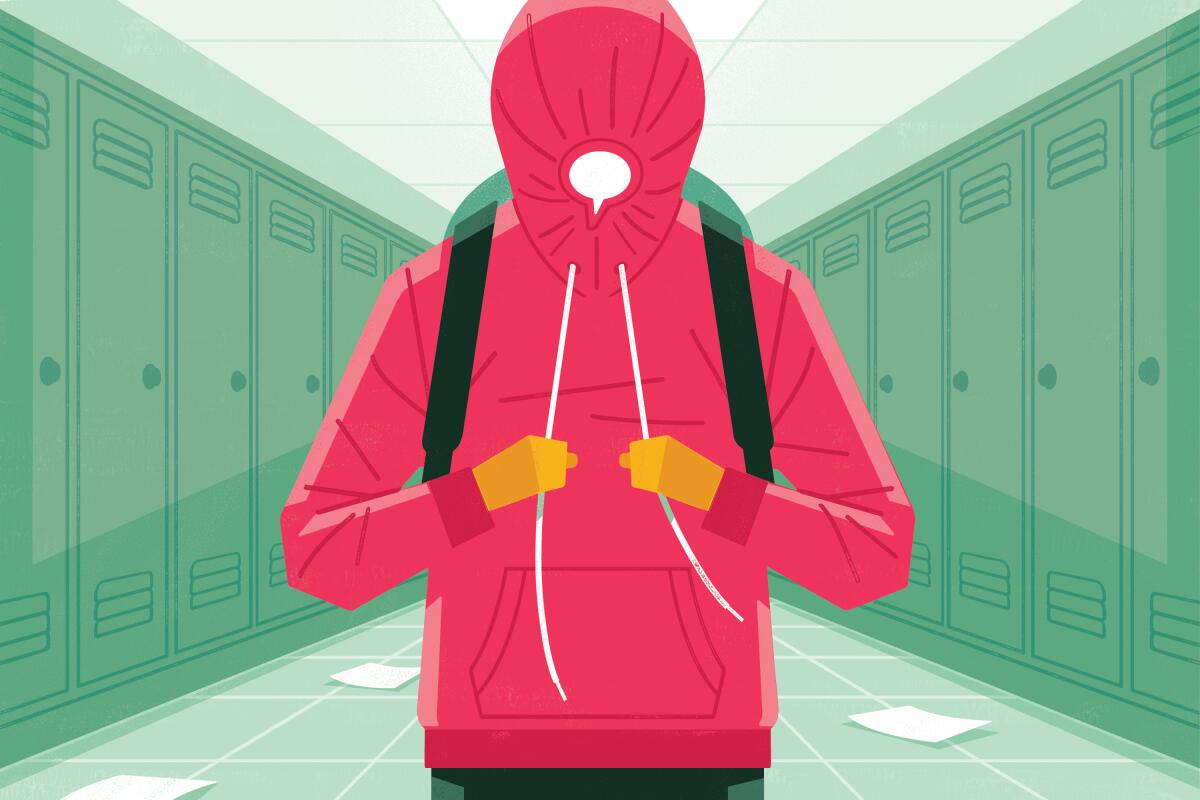Letters to the Editor: Is there any hope for reopening teenage minds? Not in this climate

- Share via
To the editor: How is it that a senior in high school such as Zach Gottlieb understands the closing of minds better than some of The Times’ own columnists? (“Listen up. The closing of the teenage mind is almost complete,” Opinion, Dec. 10)
People like Gottlieb will soon be first-year students at universities across the country. And, many parents will give their kids this warning: Anything you say or do in class or on campus will be held against you. If you don’t like the professor’s politics, parrot back his views on his tests, get your A or B, and get the hell out of his class.
The same thing goes for on-campus political discussions. Keep your mouth shut and you’ll survive.
I wish Gottlieb’s ideas on having a spirited conversation on ideas would come true, but it’s not likely in this climate.
Mark Walker, Yorba Linda
..
To the editor: As thoughtful as Gottlieb’s article on close-mindedness among high schoolers is, one important element is missing from his argument — historical perspective.
Today’s system may be flawed, but it’s light years ahead of that in decades past. It’s certainly much better than the junior high and high school education I received in L.A. during the racist, sexist, homophobic, McCarthyist 1950s and early 1960s.
However one-sided today’s school discussions are by Gottlieb’s reckoning, at least issues having to do with race, gender, sexual orientation and politics are on the table. In the past, we pretended as if they didn’t exist.
Vincent Brook, Los Angeles
..
To the editor: Gottlieb is correct in his evaluation of the lack of critical thinking in our schools.
It is essential for each of us to be able to see other points of view, even when we may not agree with them or even accept them. We need to understand other people and how they view the world.
Without this ability, a person becomes dogmatic, unempathetic and overly critical. One cannot “see” with one’s intelligence and reasoning what might be worth considering in another point of view.
This is how we learn to compromise and work together.
Betty Seidmon-Vidibor, Los Angeles
..
To the editor: My hopes for the future were given a refreshing boost when I read the piece by Gottlieb.
I only hope that more young people will embrace his ideas on having open, nonjudgmental discussions about current topics. It wouldn’t hurt for us old folks also to follow his advice.
Joel Jamison, Carpinteria






